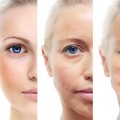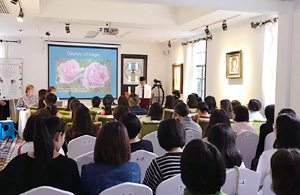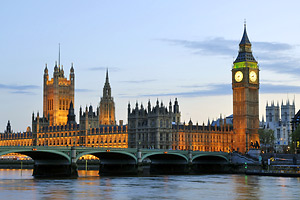Can You Eat Your Way To Thicker, Fuller Hair?
 Did you know that what you eat affects your hair?
Did you know that what you eat affects your hair?
That’s news to most people, especially those who are dealing with hair loss.
While there are many possible causes for hair loss – stress, the environment, health problems – achieving thick, full and healthy hair ultimately starts with your diet.
That’s because the nutrients you get from food and supplements provide the building blocks for your hair growth.
Research shows that certain nutrients, including iron, zinc, B vitamins, vitamin C and omega-3s are essential to healthy-growing hair, while lack of these nutrients and certain inflammatory foods can lead to hair loss and slower-growing hair.
Integrative nutrition health coach Maria Marlowe has partnered with Nioxin to spread the word about how nutrition contributes to achieving a beautiful mane. Here are her best tips about what to eat – and what to avoid – for optimal hair health.
What to consume:-
Iron
Iron helps boost circulation and carries oxygen to your hair’s roots, which helps the hair grow faster and longer. An iron deficiency can lead to hair loss. Some good sources of iron include clams, beans, lentils, pumpkin seeds, sesame seeds, oysters, grass-fed beef and bison.
Zinc
Zinc is involved in hair growth and keeps the oil glands around the hair shaft working properly. If you have dandruff, slow-growing hair or hair loss, low levels of zinc might be the culprit. To ensure you have enough in your diet, try oysters, white beans, chickpeas, red kidney beans, black beans, lentils and seeds.
B vitamins
Biotin is the most well-known B vitamin that helps keep the hair thick and healthy. A deficiency can lead to hair loss. Additional B vitamins, including B1, B2, B3, B6, B12 and folate (B9) also support healthy hair growth, as B vitamins create red blood cells, which carry oxygen and nutrients to the scalp and hair follicles. Eat eggs, sweet potatoes, onions, pecans, almonds, tomatoes, carrots, grass-fed beef and avocado for a diet rich in B vitamins.
Omega-3
Omega-3s are essential fatty acids that are anti-inflammatory powerhouses. Since your body does not produce them naturally, you must consume them through your diet. Most people associate fish, like mackerel, wild salmon, herring, sardines and anchovies with omega-3s, but you can also get them through flax seeds, walnuts, chia seeds and hemp seed.
Vitamin C
Vitamin C is a powerful antioxidant that helps protect against oxidative stress caused by free radicals, which can hamper hair growth. It helps you absorb iron from plant-based foods, and supports the body in collagen formation, which is required for optimal hair growth. Food sources include bell peppers, citrus fruits, strawberries, pineapple, kiwi and dark, leafy greens.
Supplements
While eating a well-balanced, nutrient-rich diet on a regular basis is ideal for improving hair health, incorporating a hair-supportive supplement like Nioxin’s Recharging Complex is a great way to help you reach your nutrient needs. This once-a-day tablet contains biotin, zinc and iron, plus 14 other nutrients that support healthy-growing hair from the inside out.
What to avoid:-
Sugar and high-glycemic foods.
Sugar and high-glycemic foods produce inflammation in the body. They can lead to an increase in insulin, which creates more available DHT, a hormone that can cause hair follicle shrinkage and hair loss in women and men. Avoid foods like sugar, bread, cereal, pasta, crackers, cookies, cake and candy.
For more information, visit www.nioxin.com
Article Copyright © BPT 2019 ![]()
















